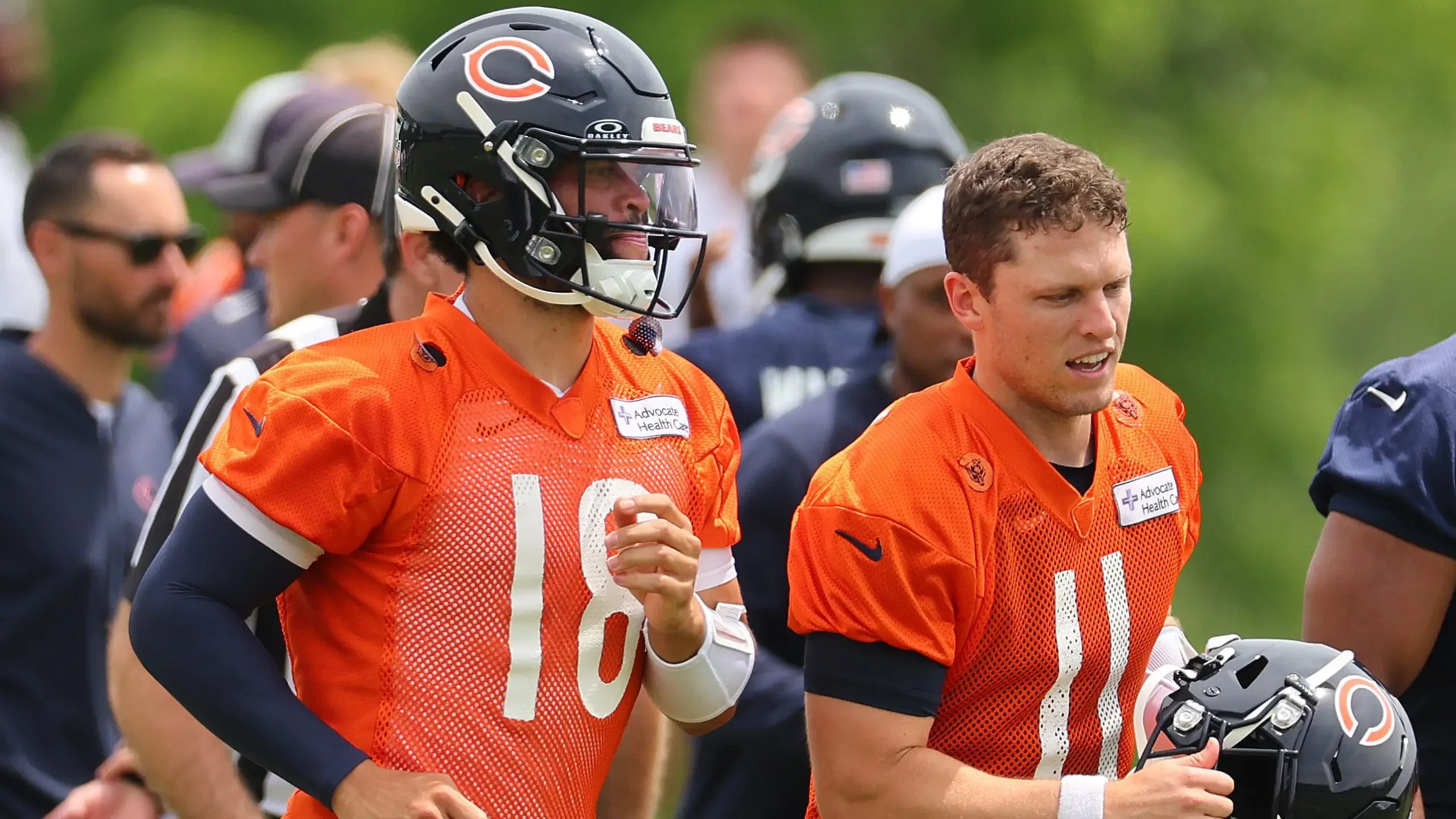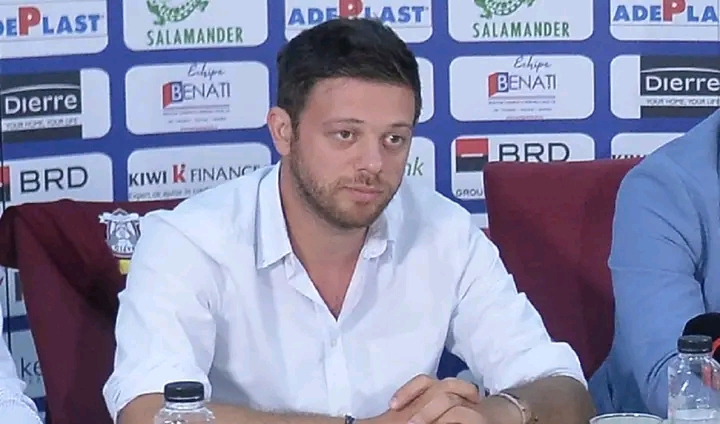That sounds like a dramatic moment in a game! It seems like the Bears’ defense made a crucial play to seal the game, and their celebration was quite expressive. Kevin Byard’s shout of “Game over!” indicates the finality of the play, while Jaquan Brisker’s gesture of putting his hands together and tilting his head as if sleeping could be a playful or symbolic way of saying that the game was over and it was time to rest, implying they had secured the victory.
In moments like these, the emotions and celebrations of players can really capture the intensity and significance of the game. Byard and Brisker’s reactions reflect not just the end of the game but also the relief and triumph of a hard-fought victory.
It sounds like the Bears’ practice was challenging, especially for the first-team offense. Struggling in a two-minute drill can be frustrating, particularly after a long, hot practice where energy and focus might be wearing thin. Such drills are crucial for simulating high-pressure situations and testing the offense’s ability to perform under time constraints.

Here are a few points to consider about this situation:
1. **Learning Opportunity:** While failing to score in a critical drill is disappointing, it’s also an opportunity for growth. The coaching staff can use this as a teaching moment to address what went wrong and work on improving the team’s execution in similar situations.
2. **Practice Conditions:** Practicing in hot conditions can be physically and mentally draining. It might impact players’ performance and decision-making, but it’s also a chance to build resilience and adapt to challenging conditions.
3. **Offensive Coordination:** A tough practice might highlight issues with offensive coordination, timing, or execution. Identifying and addressing these issues now can help the team perform better during actual games.
4. **Team Morale:** Moments like these can affect team morale, but they can also bring the team together if handled constructively. It’s important for players and coaches to stay positive and focused on improvement.
Overall, while the end of that practice might have been a low point, it’s part of the broader process of preparing for the season. Each setback provides a chance to evaluate and refine strategies, improve skills, and strengthen the team’s cohesion.
Coach Matt Eberflus’s comments reflect a balanced and realistic perspective on team performance. His emphasis on the importance of all three phases—offense, defense, and special teams—functioning cohesively is crucial for building a successful team. Here are some key takeaways from his statement:
1. **Holistic Approach:** Eberflus is highlighting that a team’s success depends on more than just one aspect of the game. Even if the offense struggles, the defense and special teams need to step up to keep the team competitive. This holistic approach ensures that all areas of the game contribute to the team’s overall performance.
2. **Encouraging Resilience:** By acknowledging that there will be days where different phases of the game might struggle, Eberflus is encouraging his team to remain resilient and focused. It’s a reminder that setbacks are part of the process and that the goal is to achieve consistency and improvement across all phases.
3. **Focus on Improvement:** His comments suggest a focus on continuous improvement and development. Recognizing that the team isn’t “there yet” implies a commitment to working on the areas that need enhancement and striving to get all three phases performing at their best.
4. **Team Unity:** Eberflus’s message also aims to foster team unity and a shared responsibility among players. Understanding that each phase of the game affects the others can help players see the bigger picture and work together towards common goals.
Overall, Eberflus’s approach is about setting realistic expectations while also driving the team to improve collectively. It’s about building a solid foundation where all components work together effectively, leading to better overall performance on game day.
Coach Matt Eberflus’s remarks underscore a fundamental principle of football: success relies on the collective performance of all three phases of the game. Here’s a breakdown of what his comments convey:
1. **Acknowledgment of Struggles:** Eberflus openly recognizes that the offense had a challenging day, which is a realistic and transparent approach. It shows he’s aware of the issues and isn’t shying away from addressing them.
2. **Emphasis on Balance:** His point about all three phases—offense, defense, and special teams—needing to be in sync highlights the importance of balance. In football, if one phase underperforms, it can put additional pressure on the others, making it harder to win games consistently.
3. **Realistic Expectations:** By stating that “we’re just not there yet,” Eberflus sets a realistic expectation for the team. It’s an acknowledgment that while progress is being made, there’s still work to be done to reach the desired level of performance.
4. **Encouraging Improvement:** Eberflus’s comments are likely aimed at motivating the team to improve. Understanding that all three phases need to function well together encourages players to focus on their areas of responsibility while also supporting their teammates in other phases.
5. **Building Team Unity:** This message reinforces the idea that every player has a role in the team’s overall success. It promotes a sense of unity and collective effort, emphasizing that everyone needs to contribute to achieving team goals.
Overall, Eberflus’s comments are a mix of constructive criticism and encouragement. They reflect an understanding of the challenges while focusing on the importance of a well-rounded, cohesive team effort.
The prevalence of false starts for the first-team offense, especially with a returning offensive line, highlights some of the challenges that come with integrating new elements into a team’s offense. Here are a few factors that might be contributing to these issues:
1. **New Quarterback:** Adjusting to a new quarterback can disrupt the usual timing and rhythm of the offense. The offensive line and skill players need to develop new chemistry and synchronize their movements with the quarterback’s cadence and play calls.
2. **New Playbook:** A new offensive playbook means different terminology, concepts, and schemes. This can create confusion or a lack of familiarity, leading to mistakes such as false starts as players adjust to new procedures and expectations.
3. **Communication Issues:** With changes in the offense, communication becomes even more crucial. Miscommunication between the quarterback, offensive line, and other players can lead to timing issues, including false starts.
4. **Practice and Preparation:** The false starts might also be a result of the team still being in the early stages of practice and preparation. These issues often improve as players become more accustomed to the new system and gain more practice repetitions.
5. **Stress and Pressure:** During practice, especially in high-pressure or simulated game situations, players might be more prone to errors like false starts due to stress or an increased focus on executing new elements of the offense.
### Moving Forward
1. **Focused Drills:** The coaching staff might implement specific drills to address timing and cadence issues, helping the offensive line and the quarterback better synchronize their movements.
2. **Film Study:** Reviewing practice film can help identify the root causes of the false starts and provide opportunities for coaching and correction.
3. **Gradual Integration:** Ensuring that the integration of the new quarterback and playbook is gradual and methodical can help minimize disruptions and allow players to adapt more smoothly.
4. **Practice in Simulated Game Conditions:** Simulating game conditions during practice can help players get used to the flow and pressure of real games, reducing the likelihood of false starts and other mistakes.
Overall, while false starts are a concern, they are not uncommon when a team is adjusting to significant changes. With continued practice and focus, the team is likely to improve as they become more familiar with the new quarterback and offensive system.



